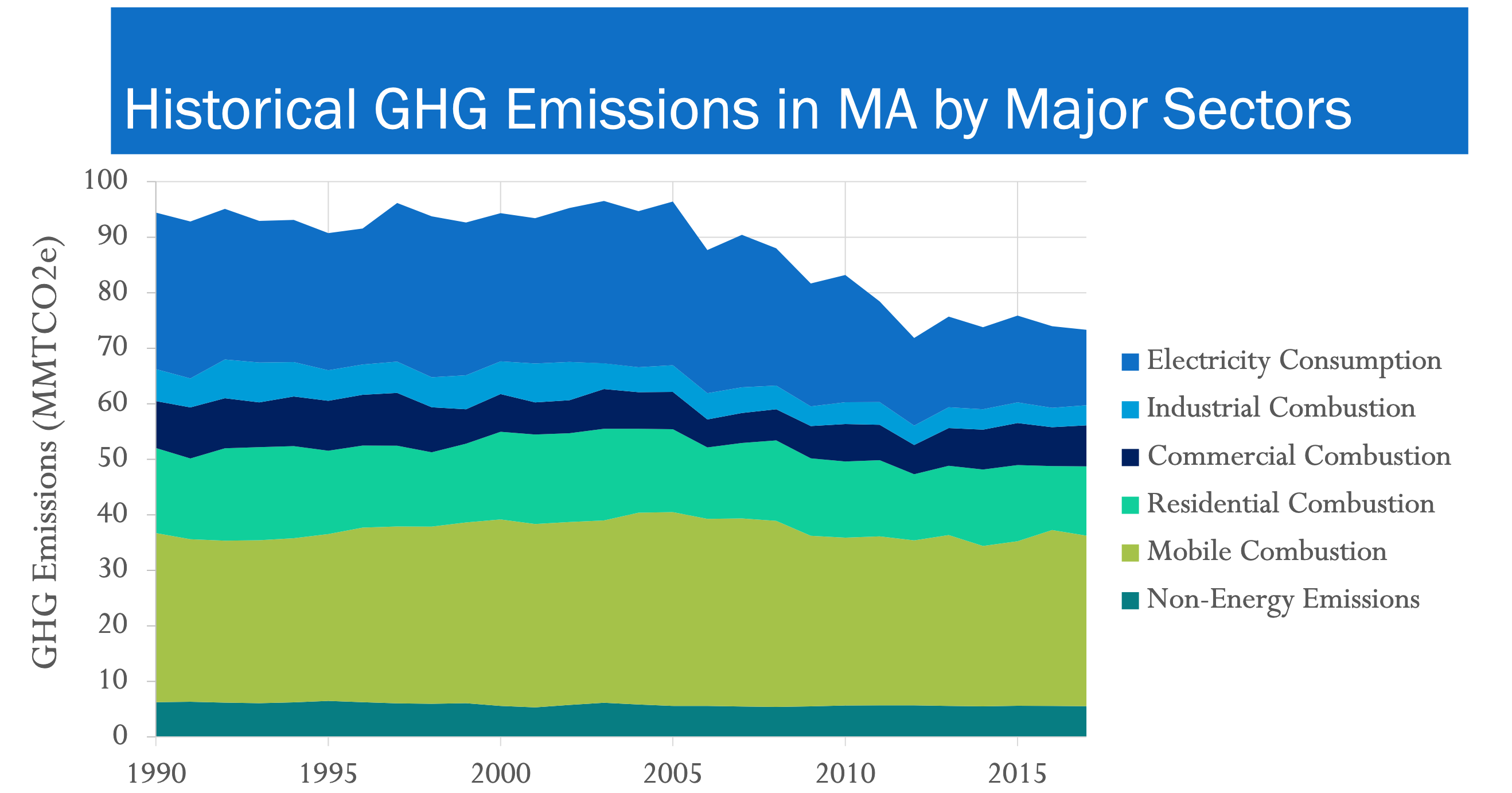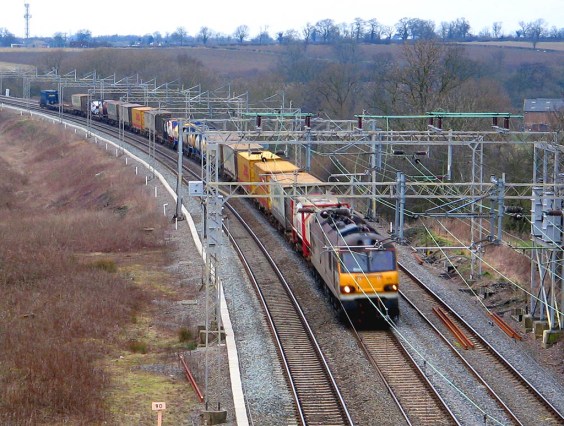The Massachusetts House of Representatives passed a significant new climate bill on Friday night that commits the state to cutting greenhouse gas emissions by "at least 50 percent below the 1990 level" within the next decade.
The Senate passed a bill with similar goals at the end of January. The two chambers, which recently agreed to extend the legislative session in order to wrap up unfinished business, will still need to reconcile the different approaches of their respective bills before they adjourn for the rest of the year.
The key provision in both versions is a proposed "emissions reduction roadmap plan" to accomplish net-zero emissions by 2050, with interim goals in the nearer term (the Senate bill would require interim emissions limits every 5 years, starting in 2025, whereas the House version would set interim limits for each decade).
While the House bill doesn't explicitly mention the Commonwealth's transportation policies, beyond some limited language about electric vehicle charging, the overall goals it sets will almost certainly require major changes to how the state sets transportation policy and funds transportation agencies.
Cars and trucks generate nearly half of the state's climate pollution, and to date, most of the Commonwealth's greenhouse gas reductions have come from energy efficiency and cleaner power plants, not from reductions in tailpipe pollution.
Meeting the new 2030 goal outlined in these bills will almost certainly require significant reductions in pollution from the transportation sector in the short term.
The new legislation would also amend existing greenhouse gas regulations to include "emissions from any transportation vehicle." That's a significant improvement over the current law, which defines "direct emissions" as pollution from smokestacks and "company owned or company-leased motor vehicles," but pointedly omits privately-owned cars and trucks.






